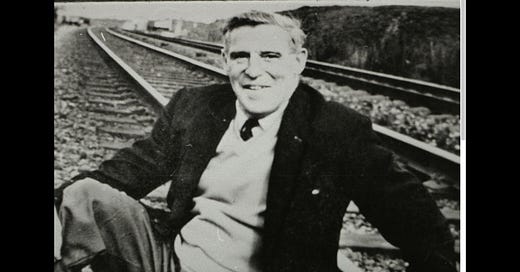The 100th anniversary of the British General Strike is three years away, and when it happens there will doubtless be an outpouring of books, conferences, television and radio documentaries, etc. The 1926 General Strike was called by the Trade Union Congress in solidarity with the miners, who had been locked out by the coal owners after refusing to accept wage-cuts and longer hours. 1.7 million workers struck nationwide.
Preparations are already underway to commemorate one of the most dramatic events of the Strike: the wrecking of the Flying Scotsman express by coal miners at Cramlington, Northumberland on 10 May 1926.
The Cramlington miners’ ‘target’ in sabotaging the track was actually a train carrying scab coal, but the Flying Scotsman came along first. Fortunately, none of the 281 passengers and crew were seriously injured. Eight miners were sentenced to up to eight years penal servitude for their parts in the incident.
Arthur Wilson, one of those imprisoned, said nearly fifty years later,
‘We had to do some thing similar to what we did do, for to let people see what we were getting. I would say we were slaves. We were getting starvation wages.’
Wilson’s account was featured in The Cramlington Train Wreckers, a 30-minute BBC documentary broadcast in 1970 as part of the Yesterday’ Witness series. It has not been shown since. Now, however, North-East playwright, Ed Waugh, and historian, Marie Dooley, have secured rights to the film and will be screening it on 20 July 2023 at The Community Hub at Cramlington Manor, courtesy of Waugh’s company, Wisecrack Productions. Waugh poses the question:
“Were the Cramlington Train Wreckers terrorists or workers trying to defend their livelihoods, family and community against an economic onslaught that actually took place after the General Strike ended?’
The TUC caved in to the Conservative government after nine days, calling off the General Strike on 12 May 1926. The miners stayed out for another six months, but were starved back to work on the employers terms.
Waugh is appealing for relatives of the saboteurs to come forward with their reminiscences:
‘The story is one of high dramatic tension and has become an important part of British history, although largely forgotten today. With the centenary approaching it is important to assess the events in an informed, dramatic and entertaining manner. We’d be particularly interested in any memorabilia for a forthcoming exhibition.”
The short video, which I produced in 2019, features footage and images to tell the story of Cramlington Train Wreckers to the tune of the traditional song, The Blackleg Miner.





Share this post